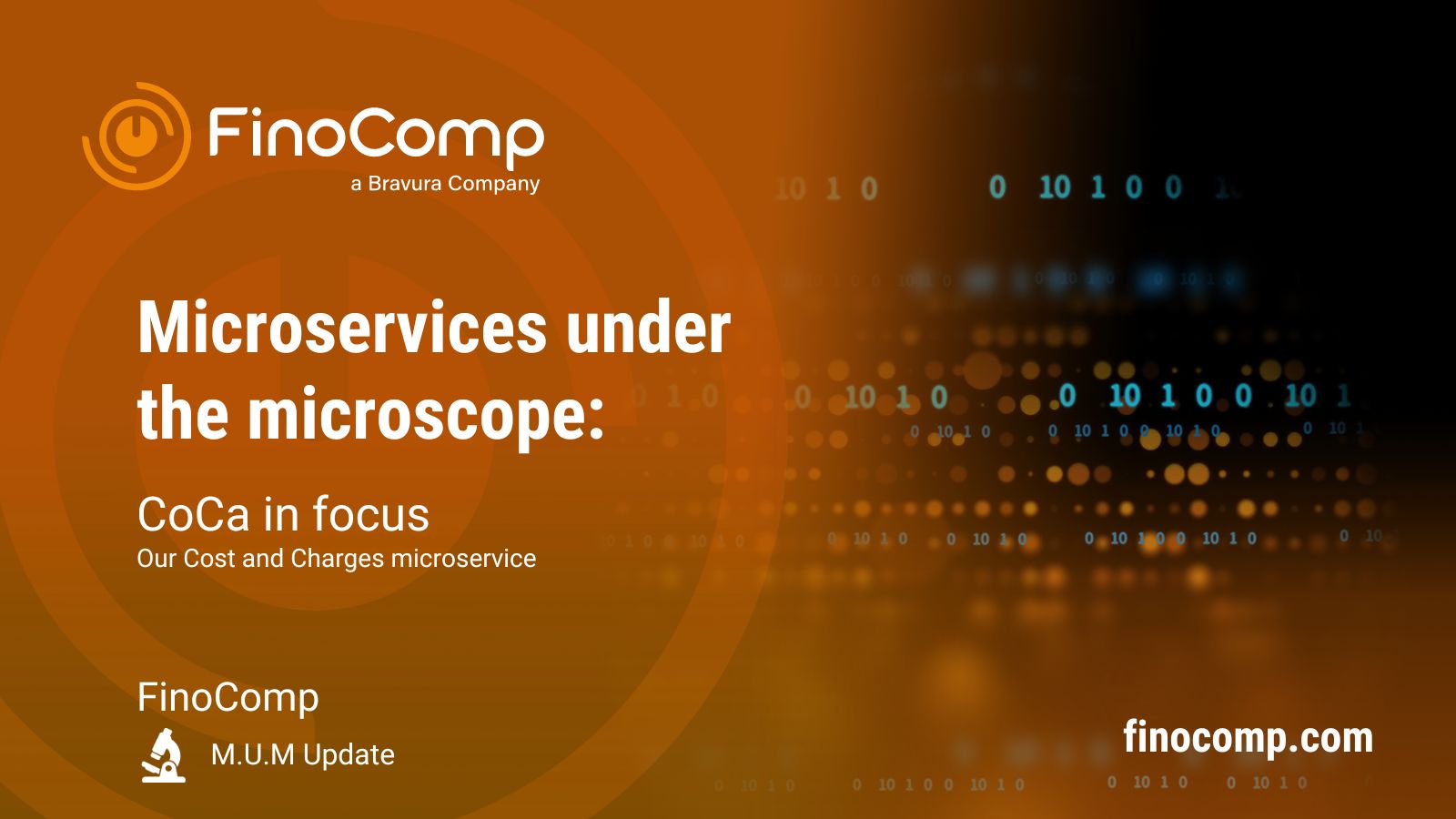Microservices under the microscope – CoCa
Dima Dimitrova, modular product manager, Bravura

Dima Dimitrova
Consumer Duty is firmly upon us, and it requires financial services firms operating under the FCA’s remit to think carefully about how they can demonstrate the value for money they give to end clients.
To do this, reporting is necessary, and technology can assist. However, that does not necessarily mean you need to go out and invest in all new systems and tools; it is instead possible to repurpose something that already exists to meet and even go above your regulatory requirements.
CoCa – FinoComp’s Cost and Charges microservice
In 2018, FinoComp launched CoCa – its Cost and Charges microservice – to support wealth managers, platforms and advisers getting to grips with the MiFID II Directive. This piece of legislation from the EU was widely seen as one of the most important regulatory initiatives seen since the global financial crisis.
We designed CoCa to help tackle the challenges faced in producing the annual ex-post costs and charges disclosures required under MiFID II. Firms needed to be able to supply a breakdown of costs and charges and make clear their impact on investment returns for the client’s overall portfolio. They had to highlight one-off charges, ongoing charges, transaction costs and any other incidentals related to the client’s investments.
CoCa offered a solution, giving a clear breakdown of costs and charges in in flexible formats which can be customised around the client’s requirements and data, along with a web portal for easy integration with existing systems and no strain on back-office technology. Uniquely, it allowed users to make disclosures at any point in the year, and drill down into the cost and charges of transactions and holdings of an investor’s account.
CoCa has the potential to support Consumer Duty compliance, much in the same way it did for MiFID II. Technology can play a key role in demonstrating value for money or, at the very least, can give the wealth manager, adviser or client all the information possible for them to assess value themselves.
Consumer Duty is all about improving outcomes for customers
In a similar vein to MiFID II, Consumer Duty is all about improving outcomes for customers. This means ensuring they have full awareness of the service they are receiving, how much it is costing them and what they get for that cost. Both pieces of legislation aimed to keep customers fully informed at all times, although Consumer Duty is less prescriptive than MiFID II and has more room for interpretation.
Whatever reporting capability you’ve been using to comply with MiFID II, you should be able to use that same mechanism for Consumer Duty. Ensuring customers understand costs and charges and are receiving information in a format and frequency they can scrutinise if they want is actually a really good way of allowing them to determine if they are getting value for money and they meet their financial objectives.
Firms have to provide a cost and charges disclosure to their customers on at least an annual basis under MiFID II. A lot of platforms and investment firms just produce a disclosure on an arbitrary date range because that’s what the regulation has told them to do.
But technology is available, and CoCa is an example of this, where you can make disclosures according to any date range. For instance, say a client meets their adviser at the start of December and that’s when they do their annual review. In this case, disclosures might be produced in February, looking back over the previous 12 months, so you’d be looking at something that’s 10 months out of date. How can you show you’re delivering value to the investor based on information that is 10-months out of date? You could move to looking at yesterday’s data instead. CoCa has a user interface that allows you to go into the minutiae, such as why you’ve chosen particular investments and what the client has been charged, even on a particular day, if that’s the level of detail you require.
To comply with Consumer Duty, you don’t have to reinvent the wheel. You can simply tailor the reporting you’re already doing. By choosing technology that is futureproof, and implementing it properly, you can pivot to support yourself through new pieces of legislation. Even as we’re looking at Consumer Duty, we need to always have one eye on what comes next.


